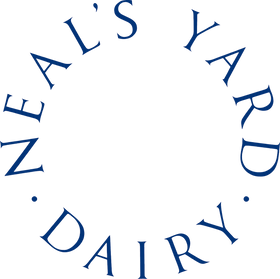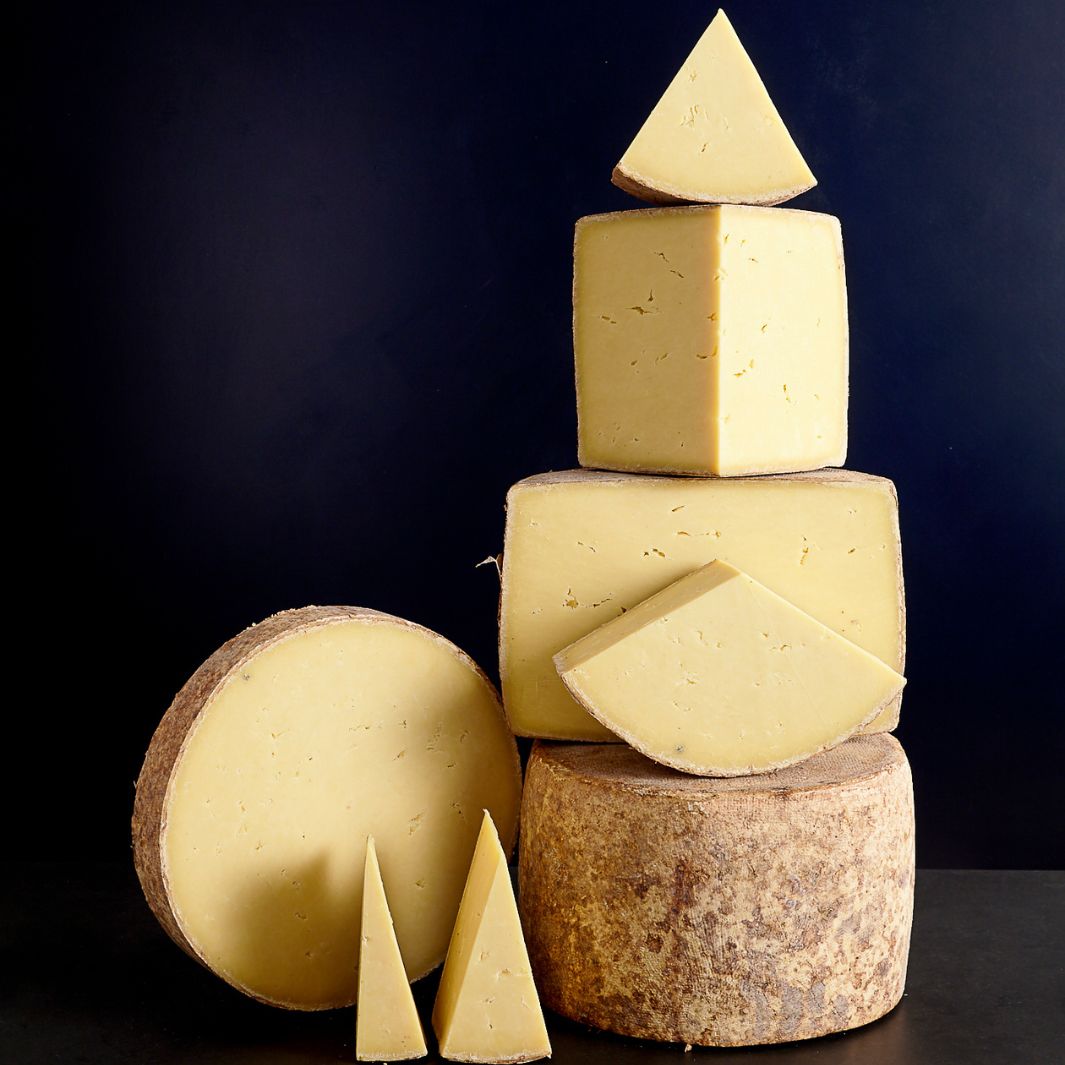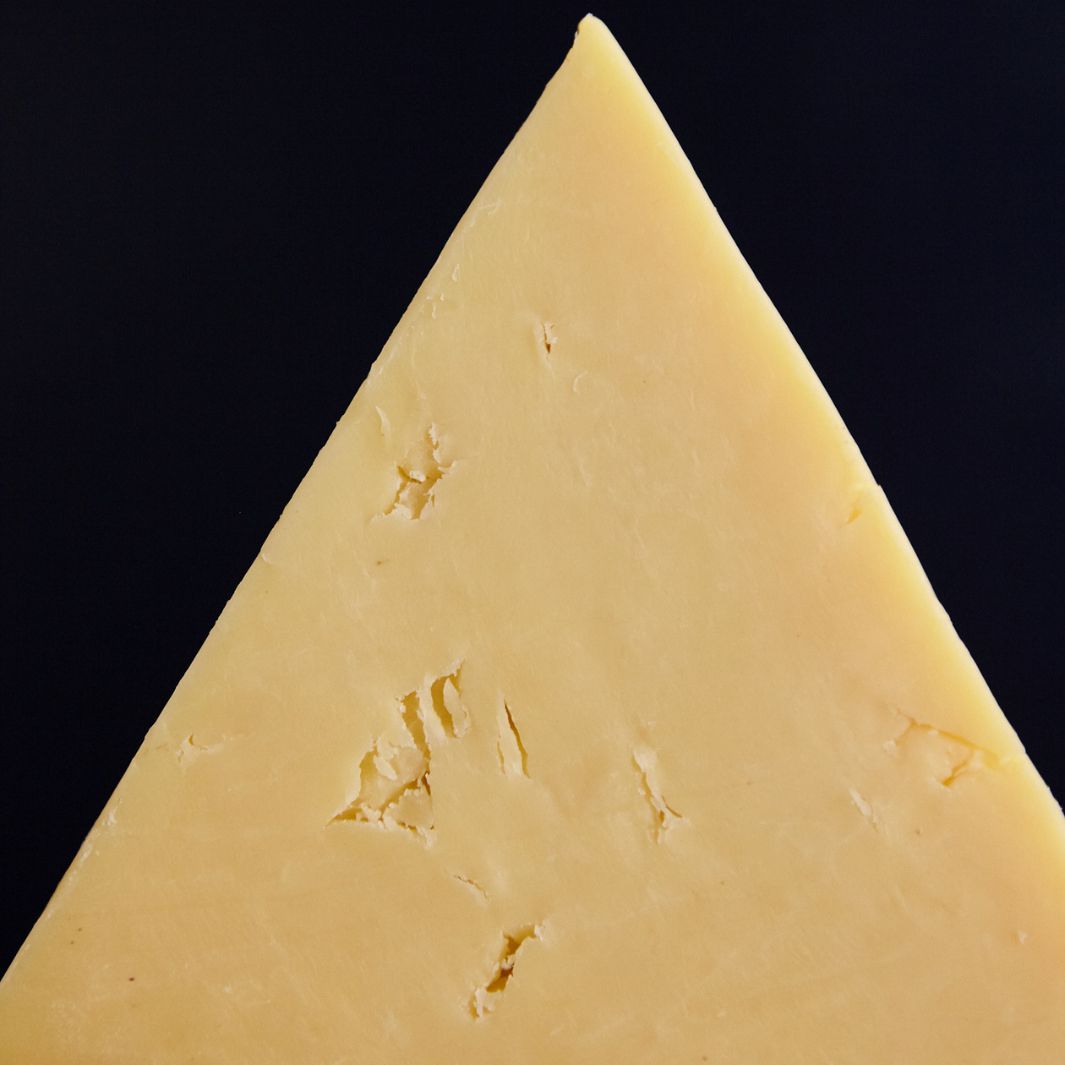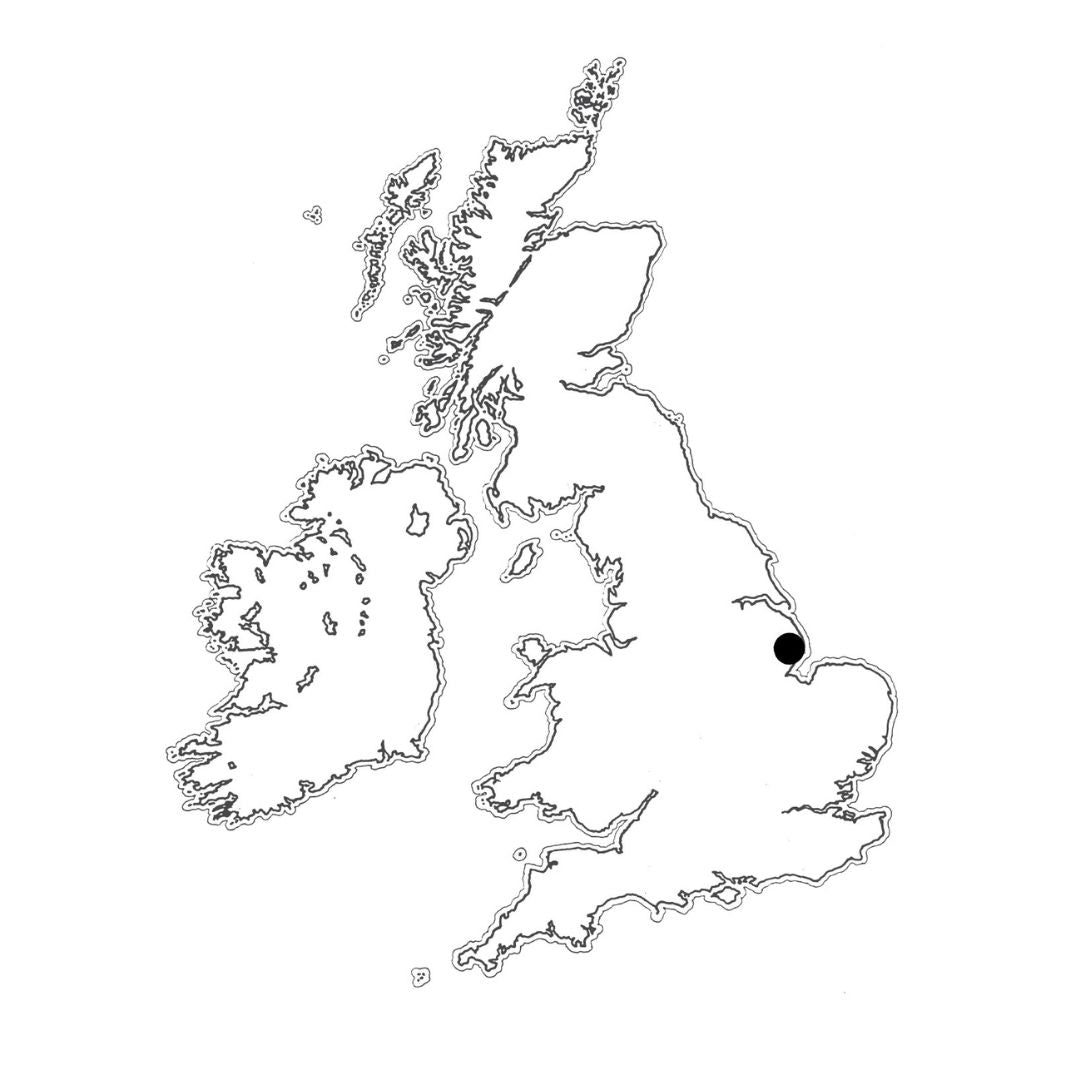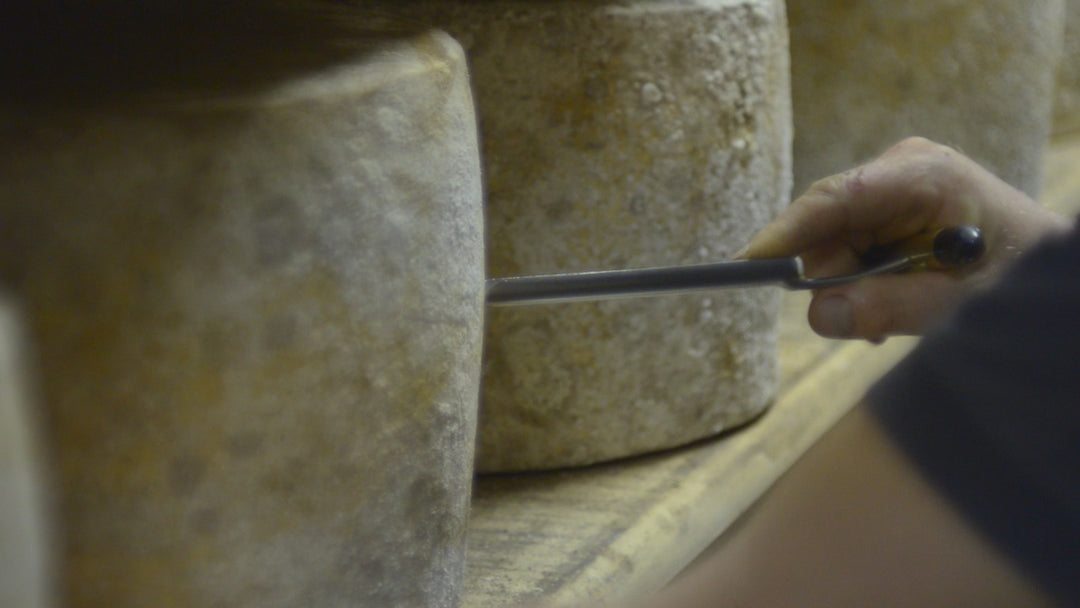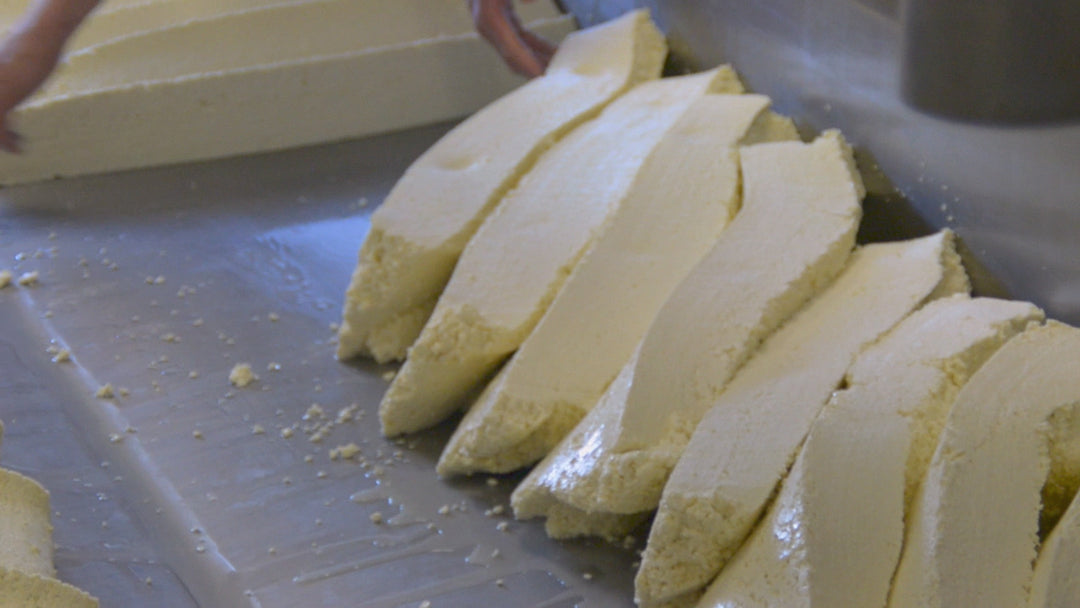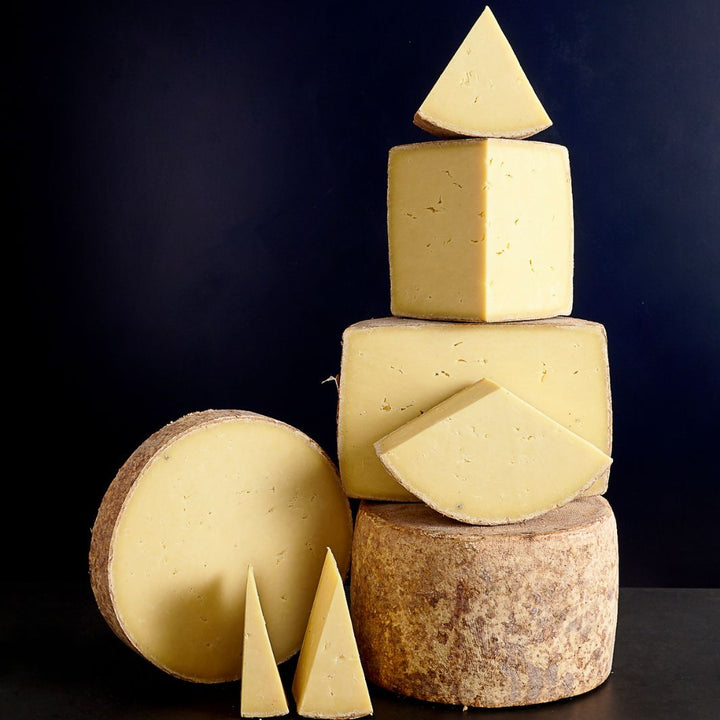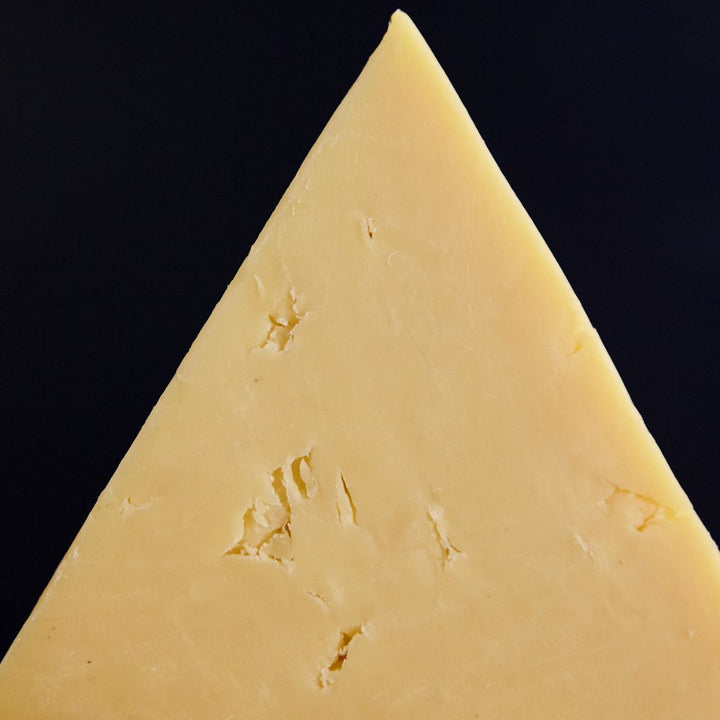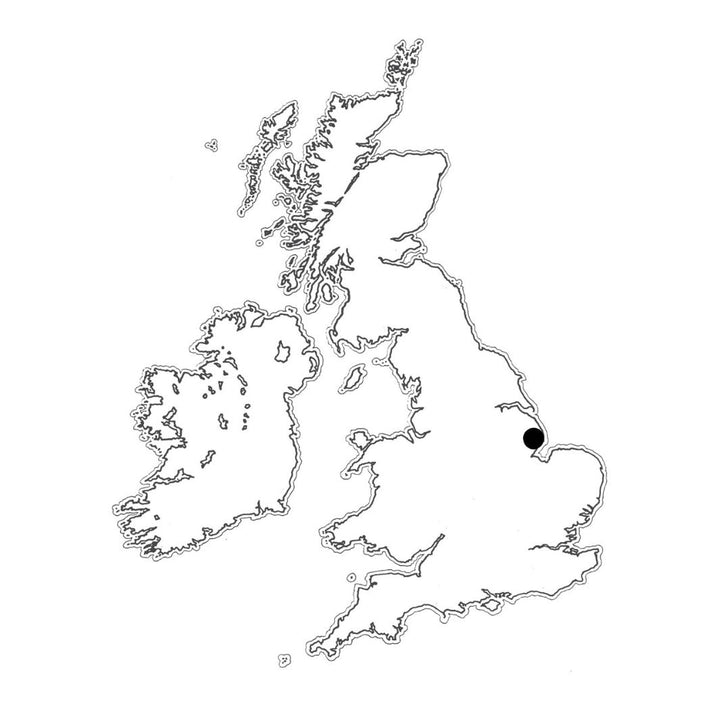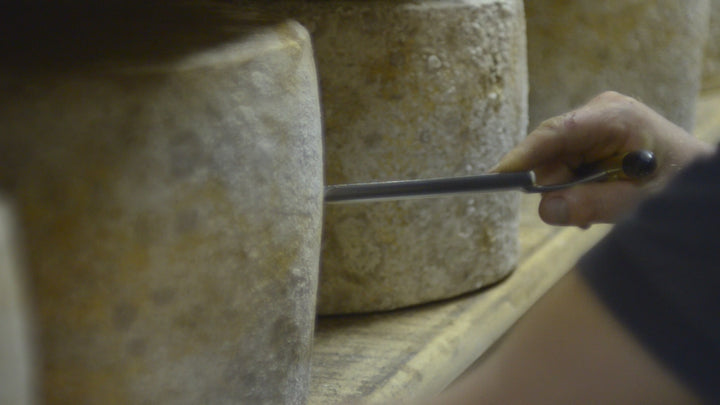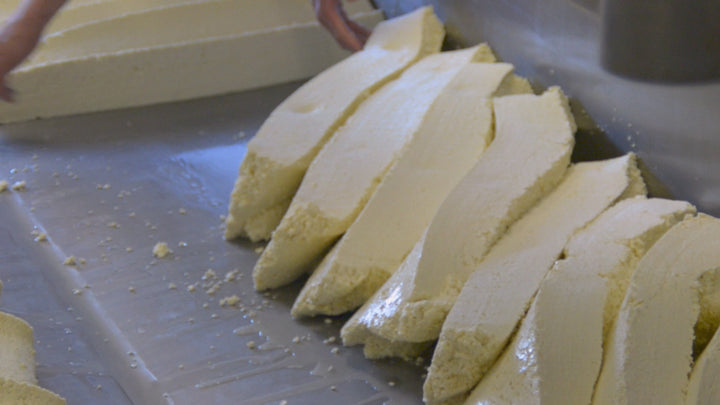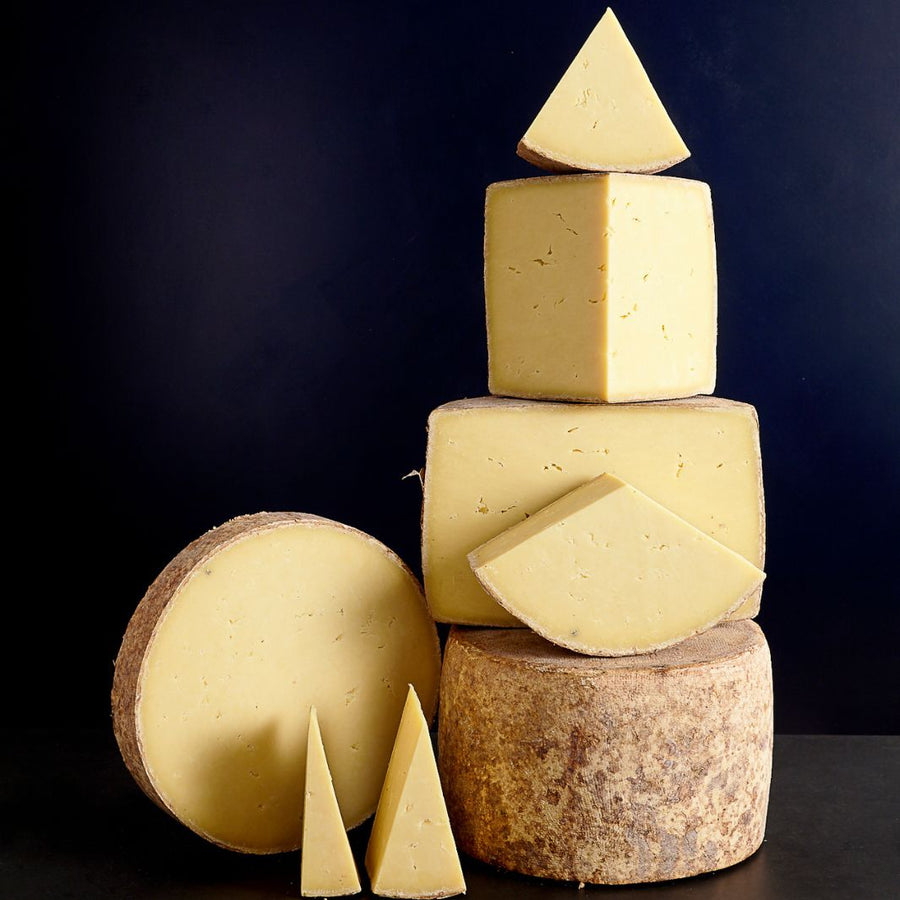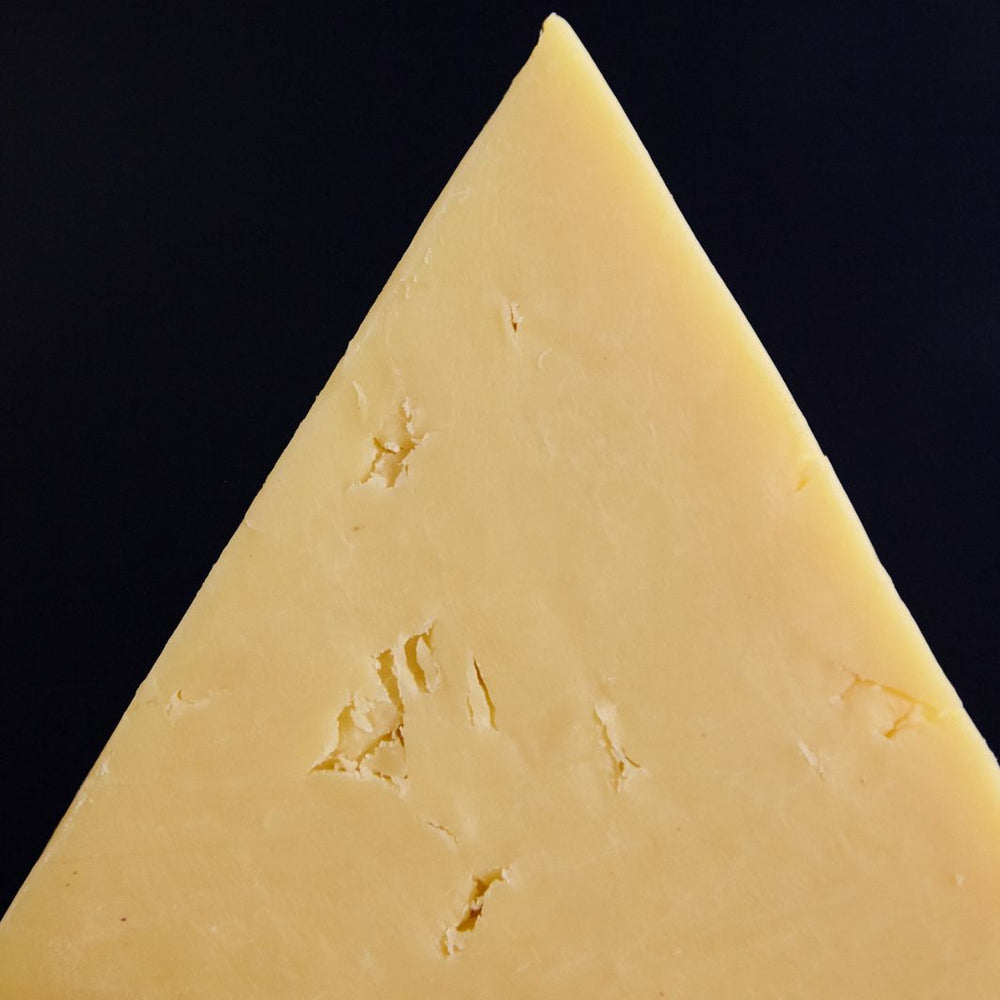Made by Simon Jones & Richard Tagg
Alford, Lincolnshire
Lincolnshire Poacher is one of very few cheeses to be produced on the east coast of the country, where the loamy or clay soils are suitable for arable farming
Though the farm has been in the family since 1917, the Jones family didn't start making cheese until the 1990s, when a young Simon returned from agricultural college. Eager to turn his hand toward cheesemaking, he enlisted the help of renowned Welsh cheesemaker Dougal Campbell to develop a recipe, and the result – which incorporates the hallmarks of a hard mountain cheese into a traditional West Country Cheddar – proved so popular that customers at the local cheese shop initially had to be rationed to quarter of a pound each. Simon's brother Tim has since joined him on the farm, and in 1995 Simon employed their first full-time cheesemaker, Richard Tagg. Today, it is Jon Collins whose job it is to transform milk from their 230-strong herd of mostly Holstein Friesians into cheese on an almost daily basis. Once the curds have been moulded, salted and pressed for 36 hours, the resulting cheese truckles are matured on wooden boards and turned regularly to ensure even maturation. The brothers recently invested in a robot for turning the cheeses, improving consistency still further. Though some Lincolnshire Poacher will be aged for up to 36 months, we believe the finest tasting wheels are between a year and 24 months old.
Tim and Simon do an excellent job managing the different profiles of cheese to sell at different ages, so by the time we come to visit them on our thrice-yearly tasting trips they will have picked out a shortlist of cheeses they think are most suited to Neal's Yard Dairy for us to select from. There are two styles we prefer: the first, big and forward, with lots of tropical fruits; the second boasting warm mountain cheese flavours, similar to Comté. Our long and close relationship with the brothers means we will also often be asked to comment on the experiments they are conducting. For example, a recent visit saw us tasting cheeses that had been scalded to a much higher temperature, in order to help them better understand the parameters of temperature in their cheesemaking.
Good quality, fast delivery
Everything arrived in time. That was perfect because it was a birthday present.
We're happy to hear that your gift of cheese arrived as expected Wiebke. Many thanks for sharing your experience with us.
Kind regards,
NYD
If you like a strong hard cheese this is (in my view) one of the best. Rich creamy strong tasting cheese that packs a punch.
Hi Kevin, thank you so much for your feedback - we appreciate it!
Best wishes,
NYD
Highly enjoy our orders from Neals Yard, consistently great quality & value
Thank you so much for your kind feedback Ruth! We appreciate it.
Kind regards,
NYD
Lincolnshire Poacher
Your review is much appreciated Greg. Thank you!
Best wishes,
NYD
